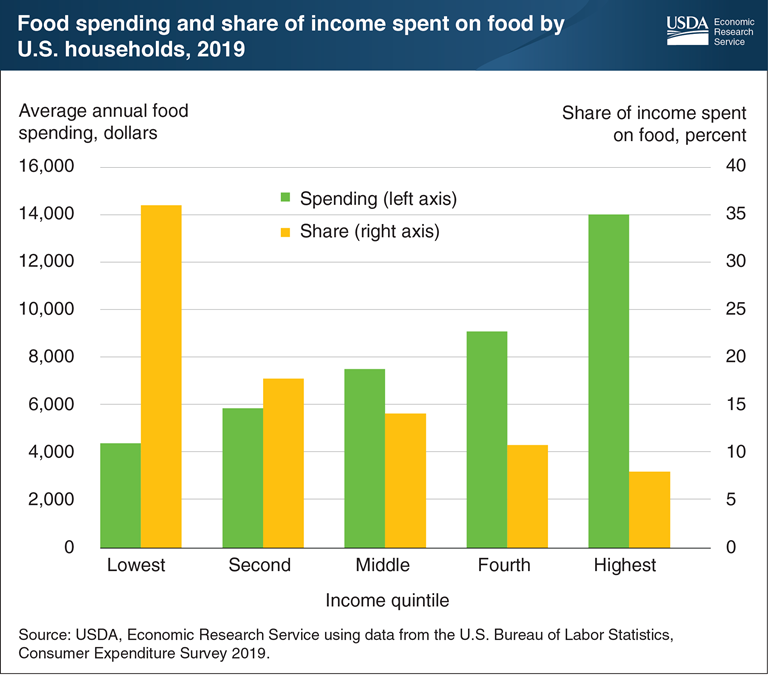We are all feeling the impact of increasing gas prices, which have climbed 27% since the Russian invasion of Ukraine on February 24.
It feels massively insensitive to complain about gas prices when thousands of lives have been lost. But I’ve come to realize that soaring gas prices have a sinister hidden impact that threatens perhaps hundreds of thousands more.
Rising fuel costs, as well as decreased corn and wheat production in Ukraine, are leading to global surges in the price of commodities. And while we are all noticing it, we know that some are being impacted by it far more than others. Within our own country, those hardest hit by rising food and gas prices are those least able to absorb the increase. Lower-income families spend a significantly higher percent of their wages on gas and groceries, as conveyed by this 2019 graphic charting food spending.

A recent USA Today article reported that while the average American family spends 10% of their income on food, poorer families pay closer to 30%. When prices surge, that percent rises precipitously, crowding out financial margin.
But it isn’t just wealthy countries where citizens are feeling the impact. As is often the case, this global disruption disproportionately hits the most vulnerable. Lesly Jules, HOPE’s regional director of savings group programs, shared that gas prices in Haiti have surged to $20/gallon. An island nation like Haiti depends heavily on imports—a 2020 report from the United Nations World Food Programme estimated that imports account for half of Haiti’s food and 83% of its rice. Rising fuel surcharges cause prices of every imported or transported good to spike.
What Russia does in Ukraine impacts families throughout the country—and around the world. In Haiti, Lesly fears “the hunger season” will return. In 2020, before the recent surge in prices, the United Nations World Food Programme, likened the cost of a single plate of food in Haiti (adjusted for percent of income consumed) to a New York resident paying $73.76 for a meal. That number is sure to increase, widening the gap between what is necessary for survival and what is affordable for most Haitians.
And this is not just the reality in Haiti—it’s a similar story in many other regions of the world where a significant portion of daily wages is spent on daily food.
For better or for worse, we’re connected. A war in Ukraine becomes a crisis not only in Ukraine but also in the poorest countries worldwide. That is part of our interconnectedness. But there is also an opportunity. Now more than ever, the global Church is aware of and awakened to pressing needs around the world. In recent weeks, I’ve seen many choosing to “weep with those who weep” (Romans 12:15), stepping into a crisis that is not their own to show compassion and God’s love to all who are suffering.
If rising gas and grocery prices are to you an inconvenience, not a burden, then I invite you to creatively reach out to your neighbors—locally or globally—who are in need. There are some who are once again entering into a precarious place of poverty; how can we walk together with them?
For better, for worse, we’re all connected.



